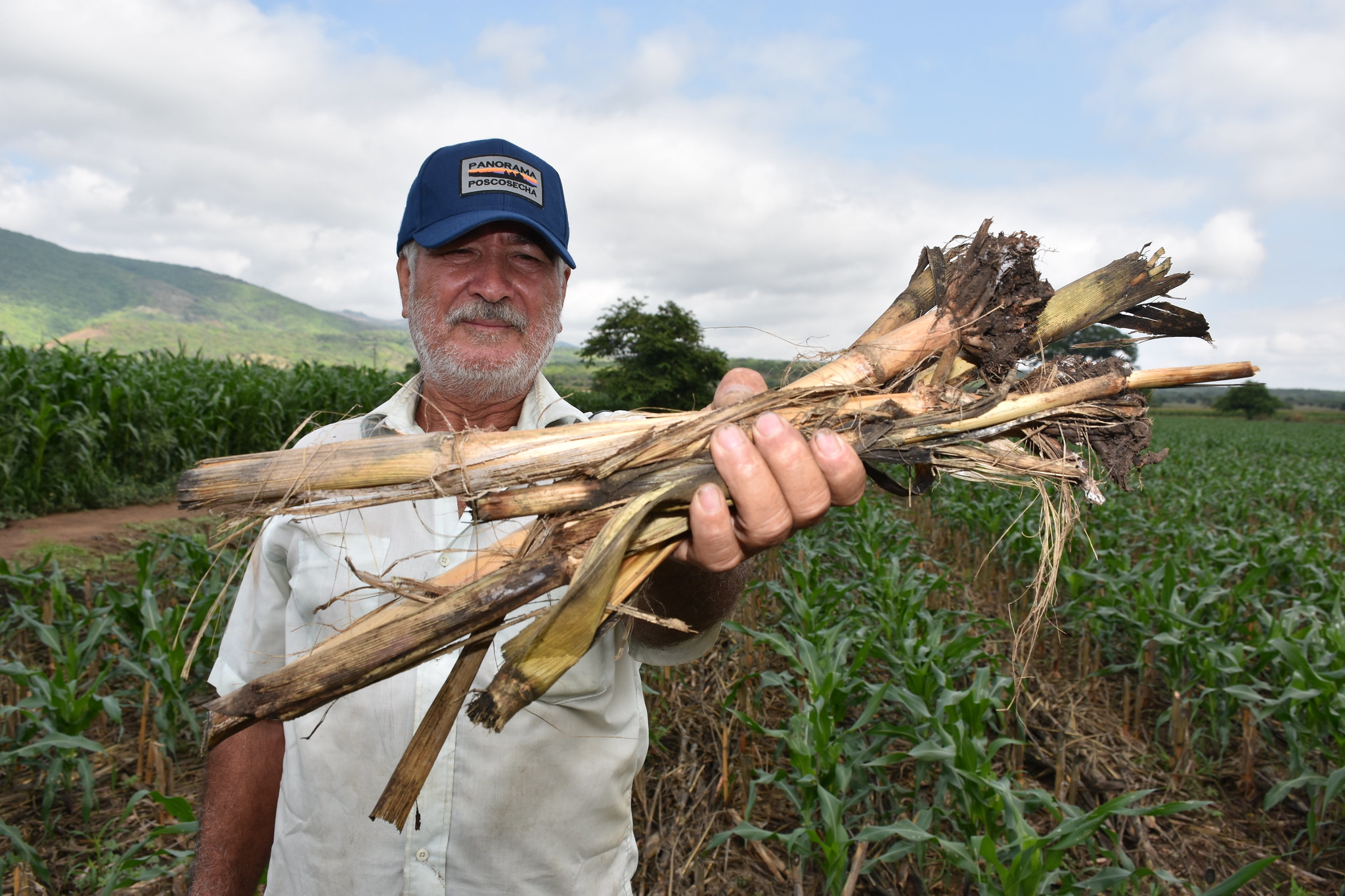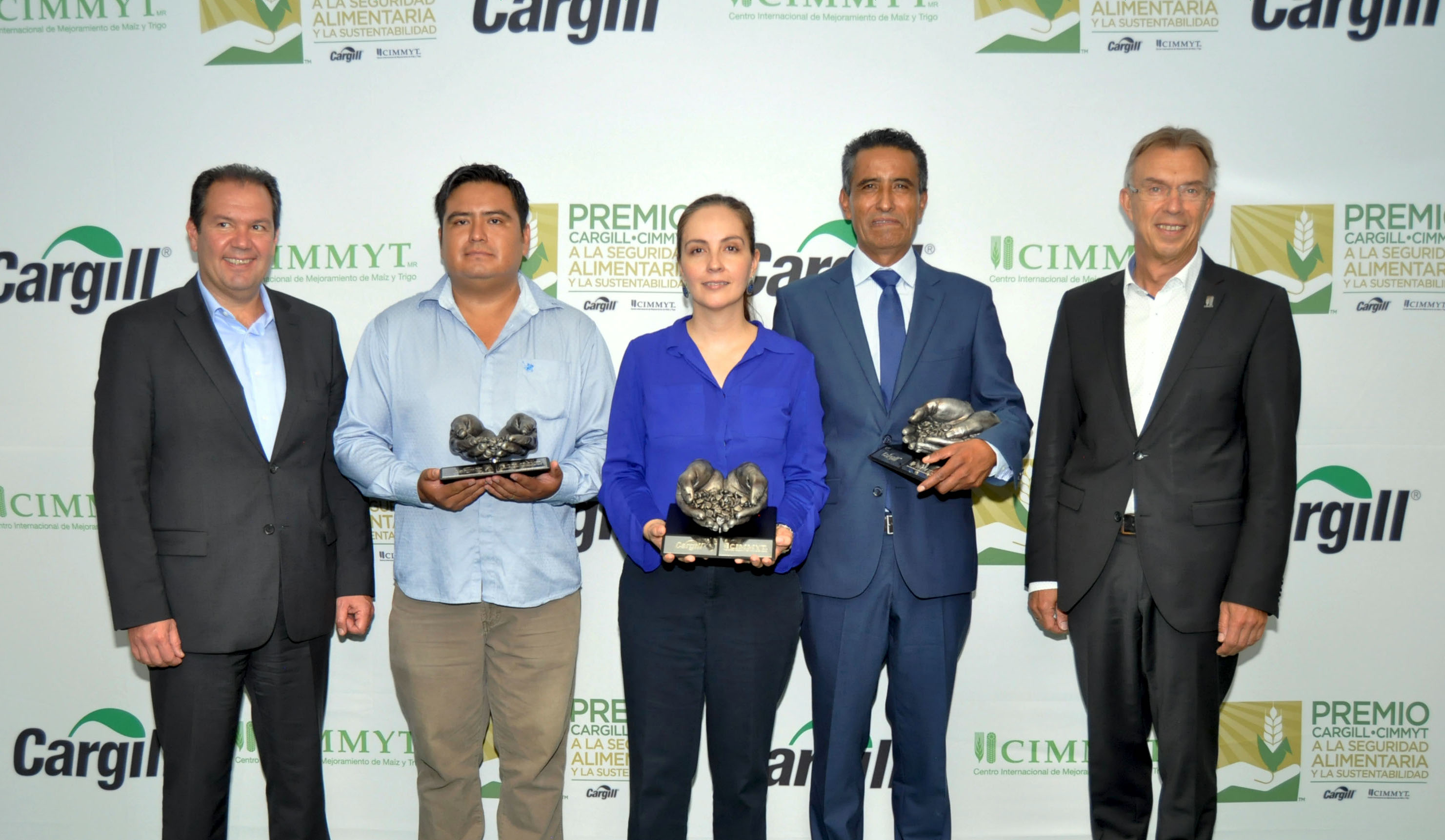
For generations, Indigenous peoples have been guardians of agricultural biodiversity, sustainable practices, and a holistic vision of the land. On this International Day of the World’s Indigenous Peoples, CIMMYT recognizes their key role in transforming agrifood systems from the roots up and reaffirms our institutional commitment to strengthening them.
In the Sierra Norte of Puebla, Mexico, Indigenous women farmers lead technological innovation processes that improve the food security of their communities. Through CIMMYT’s technical support, they have adopted sustainable practices that integrate local knowledge and scientific tools, improving yields, revaluing their crops, and strengthening their role within their territories.
In Santo Domingo de Guzmán, State of Mexico, Don Carlos Juárez has shown that the health of the soil is the health of the people. At 73 years old, he recovered the fertility of his plot with regenerative practices that now inspire his neighbors, showing how farmers’ knowledge, strengthened with science, can reverse environmental degradation.
Don Alberto Ramírez, in the Sierra Mixteca of Oaxaca, keeps alive the tradition of the diversified milpa. With native maize, beans, squash, and quelites, his plot not only feeds his family but also preserves the genetic richness of the region’s crops. Thanks to his collaboration with CIMMYT, he has strengthened his practices and shared his knowledge with other generations.
In Tzajalhú, Larraínzar municipality, Chiapas, Don Manuel Gómez Gómez and Doña Rosa have transformed their hillside plot into a living space for innovation and conservation. On land with a slope of more than 20%, they adopted the MIAF system (Milpa Intercropped with Fruit Trees) to grow peaches, maize, beans, squash, and native crops on the same plot. Although they are still waiting for their first fruit harvest, they already see benefits such as soil protection and diversified diets.
“I feel at peace because I get everything here. And if someone asks me, I will teach them, just as I was taught,” says Don Manuel.
Also in Chiapas, Doña Juanita, a Tzeltal woman from La Providencia, has improved her family’s diet and income by diversifying her crops with flowers, fruits, and vegetables, thanks to CIMMYT’s technical support and the AgriLAC Resiliente Initiative.
“Now we no longer burn the crop residues, we have crops all year round, and we sell more in the market. I don’t know how I did it, but I managed to sustain both the house and the field,” says Doña Juanita proudly.
In Oaxaca, Chiapas, and Campeche, other women such as Luisa Chonteco, Plácida Flaviana, and Reyna Jiménez are innovating in maize and bean conservation with hermetic postharvest technologies. Through projects promoted by CIMMYT, they have strengthened their food autonomy and improved their incomes by applying good practices in storage, crop residue management, and reducing agrochemicals.
These stories, among many others, show that Indigenous peoples not only preserve seeds but also ways of life, community relationships, and concrete solutions to climate change. Their active participation in the agricultural value chain — as guardians of diversity, innovators of sustainable practices, and key figures in rural development — is essential to achieving more equitable, resilient, and just food systems.
From CIMMYT, and in alliance with various institutions, we promote the strengthening of Indigenous peoples’ and communities’ economies and agricultural systems to protect the value of their crops, recognize their autonomy, and contribute to ensuring that their knowledge continues to flourish in the fields of Mexico and the world.

 Nutrition, health and food security
Nutrition, health and food security 
